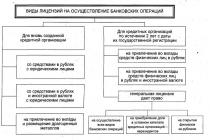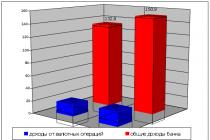Along with compulsory medical insurance, there is an alternative in the Russian healthcare system - voluntary medical insurance. This program allows you to receive timely medical care and solve various health problems without waiting in lines or paying for additional services at the clinic. How does VHI work?
Voluntary health insurance has long been known to Russians. Despite the economic crisis, many VHI programs are financially accessible and can help solve health problems or find time for a full examination and prevention.
What is VHI?
VHI (voluntary medical insurance) is a type of insurance in which the insurer, for a certain fee (insurance premium), organizes the provision of medical services to the policyholder in selected clinics upon the occurrence of an insured event - free of charge and promptly. According to the terms of the contract and the chosen program, upon the occurrence of an insured event (the need to go to a medical institution), the insured person has the right to receive assistance within the limits of the insured amount or to receive this amount into his own account and use it to eliminate the consequences of the insured event. After signing an agreement with the insurance company, the insured person is issued a VHI policy. It allows you to receive:
- treatment (inpatient or outpatient);
- diagnostics, examinations, test results;
- consultations with narrow specialists; ambulance;
- dental procedures (if they are included in the policy);
- additional services (purchase of medicines, preventive, rehabilitation measures).
The cost of a VHI policy is calculated individually and depends on the personal data and medical indications of the insured, as well as on the selected insurance program. Insurance can be individual or collective; depending on the range of services, there are basic, extended, full insurance and special insurance offers.
Differences between VHI and compulsory medical insurance
Despite the fact that both types of insurance provide medical care, compulsory medical insurance (minimum necessary medical care) differs from VHI (additional services and services) quite strongly in a number of points listed in the table below:
| VHI |
Compulsory medical insurance |
| Voluntary insurance |
Mandatory for all citizens of the Russian Federation |
| Source of financing – personal funds of the person |
Financing is provided by the state |
| Conditions are determined by the insurance company |
Insurance conditions are the same for everyone and are determined by the state |
| Possibility of choosing a wide range of medical services and treatment facilities |
Includes a minimum set of medical services. Treatment is carried out in health care facilities (therapeutic and preventive institutions) at the place of residence. Emergency assistance is provided throughout Russia. |
| High quality medical services |
Low quality of medical services |
In order to be insured under the VHI program, the policyholder must independently contact the insurer. by visiting the company’s office or inviting an insurance agent to your place, while in compulsory medical insurance the service is provided to all citizens of the Russian Federation automatically.
The main subjects of the VHI system
The main subjects of VHI are:
- The policyholder enters into an agreement and buys a VHI policy. As a rule, the policyholder can be any legally capable person, legal entity or charitable foundation;
- The insured person is a person using the services of a VHI policy (the policyholder himself or another individual in respect of whom the contract has been concluded). Any citizen of the Russian Federation or a foreign citizen can become one;
- Insurance company (insurer) is an organization licensed for this type of activity;
- Medical organizations are health care facilities that provide medical services and have a license for this activity. They enter into agreements with insurance companies.
The relations between the main subjects of the VHI system are officially enshrined in several legislative acts, and are presented in the following diagram:
A brief history of the development of VHI in Russia
VHI in Russia appeared in 1991 after the adoption of the law “On medical insurance of citizens in the RSFSR”. The voluntary insurance model of 1991-1993 was characterized by low efficiency. Thus, a person insured under a VHI contract was assigned to a specific medical organization, and when an insured event occurred, payments were often lower than insurance premiums. The funds that remained after this were returned. This model was beneficial for employers who hide employee salaries from tax authorities.
In 1993-1994, attitudes towards insurance changed, and requirements for insurers increased. New types of voluntary health insurance programs are emerging. Insurance compensations already exceed the original insurance premiums.
Since 1995, the VHI system has undergone significant changes. Firstly, it was prohibited to return unspent funds (although there is a VHI deposit agreement that allows you to transfer funds to the next insurance period). This prevented employers from evading taxes. Secondly, legislation has become stricter in relation to insurers; within the framework of VHI, organizations began to offer a large number of programs and various lists of services, and a personal approach to the client appeared.
How is VHI financed?
VHI is financed from the policyholder’s own funds (person or organization), paid as insurance premiums. The amount of payments is determined by the agreement concluded with the insurance company.
The insurer from the formed insurance fund pays medical institutions for actually rendered medical services under the VHI program. Insurance organizations may also have additional financing channels, use their own funds and interest on received and invested insurance premiums. Thus, funds come to the insurer from various sources. Then they are accumulated in a bank account and spent according to the estimate of a specific VHI policy.
Today, the VHI system is actively developing. In connection with the onset of the economic crisis and the decline in the purchasing power of the population, new programs and truncated policies are being developed. The basis of the modern VHI system is: concern for people’s health, an individual approach to each person, increasing the responsibility of insurance and medical organizations, improving the quality of medical services, and legislative regulation of all processes.
How does the VHI system work in Russia today?
Today, VHI policies are most often purchased by employers for their employees. Individual insurance under the VHI system is much less common, mainly due to very high tariffs.

To apply for a policy, the applicant just needs to come with a passport to the insurance company, fill out an application and conclude a VHI agreement. In some cases, a medical examination or questionnaire may be required.
If an insured event occurs, you should call the insurance company. She will send a medical team to the patient or provide other assistance in obtaining help; in emergency situations, you can call the city ambulance at 112. After hospitalization, you need to tell your agent the hospital number so that the insurer will pay the costs and improve the patient’s accommodation conditions. Typically receiving medical care under VHI looks like this:
- Visiting a doctor and receiving a referral for necessary examinations or procedures;
- Contact your personal manager at the insurance company with a referral from a doctor;
- Joint choice of medical institution and time of procedures;
- Carrying out therapeutic measures.
Under these conditions, all costs are borne by the insurance company. They are limited by the amount of the insured amount determined by the VHI agreement and the list of services included in a specific policy.
We are not always satisfied with the help we receive in public clinics under the compulsory health insurance policy (CHI): we may not like the quality of the services provided (due to the lack of budget funding), their quantity (surely you have at least once heard the phrase: but behind this service, contact a paid clinic), in the end, we simply may not like the rudeness and negligence of the staff every now and then. Paid medical care is coming to the aid of those who no longer count on high-quality free medical care...
>>> Subscribe to our channel on ![]()
In this article we will talk about voluntary health insurance (VHI) and what its pros and cons are.
Medical insurance in Russia
Health insurance is a form of social protection of citizens’ interests in health care, which is expressed in the event of an insured event in the guarantee of payment for medical care at the expense of funds accumulated by the insurer.
Since 1993, health insurance in Russia has existed in two forms: mandatory and voluntary.
Compulsory health insurance (CHI) is part of the state social insurance system and gives all Russians the opportunity to receive free medical care, regardless of gender, age and social status.
Voluntary health insurance (VHI) allows you to receive not only medical services included in the state-guaranteed compulsory health insurance, but also various additional programs, and in medical institutions with an increased level of comfort, at the expense of insurance companies.
VHI
The health insurance market now offers many types of voluntary health insurance. Typically, insurers offer such insurance programs (with a corresponding set of services) as:
- outpatient services;
- inpatient medical care, including hospitalization and surgery;
- emergency medical care;
- dentistry;
- doctor services at home;
- exclusive programs that may include consultations with a specialist over the phone and home delivery of medications.
In addition, special VHI programs operate for pregnant women and children.
How to get a VHI policy?
A VHI contract can be drawn up directly at the medical institution of your choice or at the insurance company whose VHI program seems most optimal to you. You can pay for the insurer's services in any convenient way: cash, bank transfer, or using electronic payment systems. Some insurance companies allow you to pay monthly or in installments.
Important! The VHI policy does not come into force immediately after receiving it in your hands. The waiting period for document activation usually lasts 7-14 days.
What determines the cost of the policy?
The cost of a voluntary health insurance policy depends on many factors, including:
- age and gender of the policyholder, presence of chronic diseases;
- volume of medical care (number of examinations in the clinic during a specified period of time, range of services and the number of specialists providing them). Thus, dental services on average increase the price of the policy by 10-15 thousand rubles;
- the amount of the insured amount;
- region of residence of the patient;
- the ability to call a specialist at home;
- availability of inpatient examination or treatment in a clinic;
- the number of clinics to which you can apply for VHI.
Important! Typically, a family VHI policy is cheaper.
Advantages and disadvantages of VHI
The VHI policy has a number of undeniable advantages:
- VHI policy holders receive additional medical services in addition to the established compulsory medical insurance.
- VHI programs provide more comfortable treatment conditions compared to the compulsory medical insurance program (modern medical equipment, the ability to make an appointment with a specialist without having to visit a therapist, no queues, attentive staff).
- Purchasing a voluntary health insurance program is cheaper than visiting a private clinic without a policy on a case-by-case basis and paying for medical services upon delivery, since the insurance company provides the clinic with a large flow of patients and receives from it wholesale discounts on the price of medical services, while the patient himself pays the insurance company a fixed price for the VHI policy.
- Flexibility. Thus, when concluding a comprehensive contract that includes all types of medical care, the client of the insurance company can individually select for himself all the necessary types of medical services.
However, VHI also has disadvantages:
- Firstly, the price. If a citizen receives a compulsory medical insurance policy for free, he will need to pay for voluntary medical insurance. Not everyone in our country is ready to do this due to the low level of well-being.
- A VHI agreement usually includes a number of restrictions. For example, some categories of citizens cannot take advantage of VHI programs (terminally ill people, the elderly, people suffering from serious diseases such as HIV), there are exceptions from insurance cases that are not covered by insurance, patients are served under VHI only in certain medical institutions and etc.
- Thirdly, there is a risk of imposing on a citizen services that he does not need. It becomes profitable for doctors to invite patients for repeat appointments and send them for unnecessary procedures, tests and examinations (the insurance company still pays for this and this has a positive effect on doctors’ salaries).
- A VHI policy is valid for a limited time (usually a year), then it needs to be renewed (unlike an indefinite compulsory medical insurance policy).
As you can see, a VHI policy is quite a useful purchase. Moreover, in addition to the above advantages, it allows you to receive a social tax deduction. So, if you receive income taxed at a rate of 13%, you can prepare a tax return and supplement your personal budget.
In accordance with Article 219 of the Tax Code of the Russian Federation, you have the right to apply a social tax deduction in the amount of insurance premiums paid under a VHI agreement, not only for your own, but also under a VHI agreement drawn up by you for your loved ones.
Many employers have long understood the benefits of this approach and began to independently purchase voluntary health insurance for their employees. On the one hand, they take care of employees, on the other hand, they maintain the required level of performance of the entire company through timely and high-quality medical care for employees.
However, in the overwhelming majority of cases, health and care for it are in the hands of each of us, and a conscious choice in favor of health is the only right decision in which voluntary health insurance will help.
Why is a VHI policy so useful?
The main and indisputable benefit of VHI is high-quality medical care beyond the scope of compulsory medical insurance in large modern clinics with the latest equipment and the best specialists, without queues, in almost any region of the country, and in some cases abroad. VHI provides the full range of medical services, but at a higher level. This includes outpatient services, calling a doctor at home, calling an ambulance, inpatient treatment, functional diagnostics, X-rays, MRI, manual and physical therapy, vaccination, transportation to medical facilities, etc.
In addition to the volume of services, the quality of VHI service is several times higher than service in municipal medical institutions: in commercial medical centers, making an appointment, registering, maintaining history and other processes take a matter of minutes. For those insured under VHI, there is 24-hour telephone support.
It is also important that the insurance is valid in all regions where the insurer has offices. Another advantage is the ability to choose the most suitable insurance program, taking into account your characteristics.
In Russia, a voluntary health insurance contract is concluded for a period of one year.
The names of the programs may differ from company to company, but the basis for the formation of any insurer’s programs is their content: what set of services can be obtained. Based on this, all VHI policies are conditionally divided into three categories: Basic, Extended and Full. The range of services, their complexity and volumes affect the cost of programs. In addition, when calculating the cost, the client’s gender, age and working conditions are taken into account. The cost of insurance is also influenced by the maximum amount of insurance coverage, the insurance period, the presence of correction factors (for example, the presence or absence of chronic diseases) and the number of insured (the more there are, the lower the cost of insurance will be).
Basic VHI policy
All voluntary health insurance programs, including Basic, include:
- consultation and treatment from medical specialists
- laboratory and instrumental studies
- call an ambulance
- home assistance from a therapist
- vaccination
- preparation of certificates, sick leave certificates, prescriptions
- medical examination
- dental care (additional option)
The annual cost of a basic VHI policy for a 40-year-old man averages 25 thousand rubles. per year (a little more than 2 thousand rubles per month). The amount of insurance coverage reaches 2 million rubles.
Extended VHI policy
In addition to the services of the basic program, under the extended policy you can also count on hormonal, immunological, allergy tests and tests for tumor markers. The program also includes more expensive tests, such as computed tomography and nuclear magnetic resonance imaging. Treatment methods include physiotherapy, exercise therapy, therapeutic massage, classical acupuncture, and manual therapy. Dental services have also been expanded: they include extraction of teeth of varying complexity, opening of abscesses of various origins, certain types of gum treatment, plaque removal, including the Air Flow method, coating of teeth with fluoride varnish, and expensive types of filling.
On average, the cost of an extended VHI policy for a 40-year-old woman is 40,000 rubles. per year (3,300 rubles per month), the amount of insurance coverage reaches 2 million rubles.
Full VHI policy
A full VHI policy has the maximum possible range of services. In addition to the options for the expanded program, it includes, for example, consultations and treatment with a psychotherapist, angiography, laser therapy, ozone therapy.
The cost of a full policy for a year for a 40-year-old woman will average 95 thousand rubles. per year (about 8 thousand rubles per month), the insured amount reaches 2.5 million rubles.
The cost of a VHI policy also depends on the insurance company, or more precisely, on the level of medical centers with which they cooperate. It is convenient to compare similar VHI programs from various insurance companies on our website.
At the moment, the cost of a voluntary health insurance policy starts from 10-12 thousand rubles, and the maximum amount under current offers is about 200 thousand rubles. per year.
How to choose VHI
The easiest way to conduct reconnaissance is through the Internet. Prices and conditions can be compared on the insurance website, and it is even easier to do this on our website, which contains offers only from already verified insurance companies.
The next step after choosing a voluntary health insurance program is to apply on the website. Next, representatives of the company will contact you, send you a form, which you need to fill out and send back to the insurance company or to our website - depending on where the application was generated.
Once the policy is ready (different companies have different policy production times), it will be delivered to any place convenient for you. It is important to note that all insurance companies require a one-time payment for a VHI contract without any installment plans or payment schedule.
Exclusions from VHI programs
According to the rules, not everyone can take out a VHI policy. Exceptions include:
- people with AIDS syndrome and HIV carriers
- drug addicts and alcoholics registered at a drug treatment clinic
- people suffering from various mental disorders
- cancer patients
- patients with venereological diseases
- patients with tuberculosis
- disabled people of the first and second groups
In addition, to avoid the risks of using a VHI policy for known chronic diseases (ulcers, bronchitis, diabetes, etc.), insurance companies may ask to present a certificate of health. But in most cases, a passport and a completed application form will be enough.
Follow the rules!
Insurance does not cover others: Your policy cannot cover anyone other than you.
With voluntary health insurance, an insured event is considered to be any request for medical care during the policy period. Therefore, if the patient does not show up for the appointment, he is obliged to reimburse the company’s expenses himself.
If you contact a medical institution for a case that is not included in the contract, or the contract amount is exceeded, you will also have to pay for the services yourself.
The application form must provide accurate information. Its concealment or deliberate distortion may be considered a violation of insurance rules, and then the insurance company has the right to cancel the contract ahead of schedule.
Wholesale is cheaper
Group insurance significantly reduces the cost of a single policy. You can unite with friends, colleagues, neighbors in groups of 10 people and draw up collective agreements with insurers.
Perhaps for most Russians today, voluntary health insurance is still an expensive service. However, at the same time, it is a win-win investment in your health, and therefore in your future: a VHI policy will help you get out of difficult life situations, receive quality treatment from the best specialists and quickly regain your health.
A number of large companies are increasing their employer status by including a VHI policy in their social package for employees. But it is not always clear what is hidden under this “bun”. Are all policies the same, or do they have different services? How much better is VHI than compulsory medical insurance? What pitfalls are there in drawing up such an agreement? And how much does it cost? Let's figure it out in order.
About health insurance in general
Let's start with the main thing: let's define what VHI is. The abbreviation stands for voluntary health insurance.
Free healthcare is a very relative concept. Even if you visited a therapist in a regular city clinic and did not pay money for it, this does not mean that his services were really worthless. Employer firms that purchase policies for their employees regularly contribute a certain amount to the compulsory health insurance fund, which depends on the size of the employees’ salaries. This fund finances the work of doctors, which appears to be free for the population.
It’s not just that at the clinic they require you to have a compulsory health insurance policy (CHI), issue a card and force you to take the notorious coupons. All these “pieces of paper” are ultimately needed so that the medical institution then informs the insurance company that such and such a citizen has received a service.

That’s why a compulsory medical insurance policy is necessary so that the clinic can be confident that the insurer will pay for your visit to the doctor. If you are not insured, you will have to pay for the doctor's consultation out of your own pocket. True, the doctor who treated you will not have any benefit from this, but that’s another story.
The catch is that the services provided under the compulsory medical insurance policy are limited. You can only receive treatment in certain institutions, and you will have to pay extra for some tests and procedures. If you purchase a voluntary health insurance policy, some of these restrictions will be removed.
What is VHI
Concluding a voluntary health insurance agreement allows you to gain access to complete and expensive treatment in commercial clinics. You choose the institution where you want to receive medical services, enter into an agreement with the insurer and pay for the policy.
It is expensive, and there is a chance that you will never use the policy. But if suddenly the need for complex and expensive treatment arises, then paying an insurance premium will be more profitable than if you paid for all the clinic’s services.
What is included in VHI
Now that it has become clear what VHI is, let’s look at the range of services. The advantage of this type of insurance is that the client himself chooses what types of medical care and in what volume he wants to receive. The list can be anything: from standard outpatient care to paid childbirth and sanatorium treatment. The client also determines which clinic is more convenient for him to consult.

Of course, the more services included, the more expensive the policy. The cost is also affected by the presence or absence of chronic diseases and the chosen medical institution. By the way, this does not have to be one clinic. There are network VHI programs, within which the policyholder has the right to go to any clinic participating in the program.
Each insurance company has its own tariff policy, and the cost of a seemingly identical set of services may vary depending on the organization.
Types of VHI
In Russia, corporate voluntary health insurance is more common, when a voluntary health insurance agreement is concluded with a legal entity that buys insurance for its employees.
In recent years, individual voluntary health insurance has also gained popularity, but many will be disappointed. The unpleasant nuance is that the insurers themselves are not very willing to cooperate with individuals - they consider this activity to be quite unprofitable. Therefore, insurers charge much less from corporate clients than from private clients.

If a legal entity buys insurance for employees, this does not mean that all of them will take advantage of the benefit received. If a person individually applies for a policy, then there is reason to believe that he has some kind of disease that requires expensive treatment.
The situation in the field of VHI is somewhat better for citizens of other countries. Free medical care for foreigners is very limited, so their desire to take out voluntary health insurance is not perceived as an intention to solve serious health problems for relatively little money.
VHI cost
For a legal entity, expenses depend on the number of employees. For companies, the price of a policy per employee can range from 8-10 thousand rubles with the economy option. If you choose premium service, the cost rises to 100 thousand rubles or more.
Voluntary health insurance for individuals costs an average of 25 thousand rubles per year, if you don’t go too fancy. As already mentioned, for private clients this service is almost a luxury. For example, if we consider the Ingosstrakh company, VHI in Moscow for individuals is provided at a cost of 38 thousand rubles. This is a basic package that does not even include dental services, for which many people take out voluntary insurance.

Of course, purchasing a policy for 25 thousand rubles does not limit the range of medical services to this particular figure, because the insured amount is several times higher than the insurance premium. That is, you pay 25 thousand, but you can get several million worth of services. This is the benefit of VHI.
Which companies provide VHI services?
One of the leading companies in this area is Ingosstrakh. Voluntary health insurance is offered in five options, and if none of the programs suits you, then you can agree on the development of an individual package of services.
Other companies include VSK, UralSib Insurance, Renaissance-Insurance, Rosgosstrakh, Russian Standard Insurance, RESO-Garantiya, Soglasie, etc.
Sometimes companies provide limited policies. For example, VTB Insurance has an insurance program for critical illnesses (heart attack, stroke, oncology, etc.). Alfa Insurance has protection in case of a tick bite.
Tax deductions
Since insurance services are underdeveloped in Russia, many are not only unaware of what VHI is, but also what benefits are established in relation to it. But if you work officially and regularly pay personal income tax, then you have the right to a social tax deduction of up to 120 thousand rubles per year. This means that the state is ready to return up to 15.6 thousand of the tax paid.
The benefit applies only to voluntary health insurance. When purchasing other types of insurance policies, no deduction is provided.

Advantages and disadvantages of VHI
The pros and cons of VHI lie on the surface. Every person who had the opportunity to personally use the services of both public and private clinics clearly felt the difference. In a commercial institution, the doctor always has time to listen carefully to the patient, there is no fuss, swearing and queues. The clinic is open on weekends and until late in the evening. And if a client needs, for example, a neurologist, he gets to him, bypassing the therapist.
Patients are also freed from the need to undergo unnecessary examinations. Anyone who has encountered this knows that, no matter what problem he goes to the state clinic with, he will most likely leave the therapist’s office with a standard list of tests that must be taken to receive a referral to a gastroenterologist, for example. After all, the medical institution receives payment for each analysis. But this is unlikely to work with VHI. Insurance companies, which have to pay for each procedure, will not allow doctors to lead them by the nose.
The main disadvantage of VHI is the high price, as well as the difficulty of choosing a suitable insurer and the optimal program. Now we know what VHI is and how to use these services.














